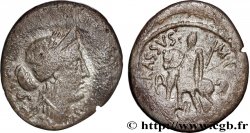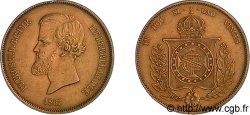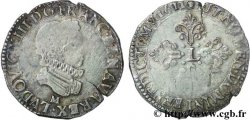v15_1491 - LICINIA Denier
MONNAIES 15 (2002)
Startpreis : 185.00 €
Schätzung : 400.00 €
Erzielter Preis : 225.00 €
Anzahl der Gebote : 7
Höchstgebot : 330.00 €
Startpreis : 185.00 €
Schätzung : 400.00 €
Erzielter Preis : 225.00 €
Anzahl der Gebote : 7
Höchstgebot : 330.00 €
Type : Denier
Datum: 55 AC.
Name der Münzstätte / Stadt : Roma
Metall : Silber
Der Feingehalt beträgt : + 950 ‰
Durchmesser : 18 mm
Stempelstellung : 9 h.
Gewicht : 4,22 g.
Seltenheitsgrad : R1
Kommentare zum Erhaltungszustand:
Très beau portrait. Légèrement décentré au revers sur la légende. Magnifique patine de médaillier avec des reflets bleutés
N° im Nachschlagewerk :
Vorderseite
Titulatur der Vorderseite SC.
Beschreibung Vorderseite Buste diadémé, lauré et drapé de Vénus à droite avec boucles d’oreille et collier.
Übersetzung der Vorderseite “Senatus Consulto” (avec l’accord du Sénat).
Rückseite
Titulatur der Rückseite [P. CR]ASSVS - M. F..
Beschreibung Rückseite La Gaule debout de face devant son cheval qu’elle tient par la bride de la main droite et une longue javeline de la main gauche ; bouclier et cuirasse à ses pieds.
Übersetzung der Rückseite “Publius Crassus Marcus Filii”, (Publius Crassus fils de Marcus).
Kommentare
Ce denier n'a pas été copié ou imité par les Gaulois. Il se rapporte néanmoins à la Guerre des Gaules et à l'un de ses acteurs. Publius est le fils cadet de Crassus et le frère de Marcus Licinius Crassus qui succéda à Publius, comme lieutenant de César, en tant que questeur. Publius Licinius Crassus avait participé à la campagne contre les Germains d'Arioviste en 58 avant J.-C. et à la soumission des tribus de l'Armorique l'année suivante avant de mener une brillante campagne en Aquitaine. Rentré à Rome en 56 avant J.-C. Il trouva la mort en combattant les Parthes avec son père. Il est plusieurs fois cité dans le de Bello Gallico, dans les trois premiers livres : I, 52 ; II, 34 ; III, 7, 8, 9, 11, 20 à 27.
This denier was not copied or imitated by the Gauls. It nevertheless relates to the Gallic Wars and one of its actors. Publius is the younger son of Crassus and the brother of Marcus Licinius Crassus who succeeded Publius, as Caesar's lieutenant, as quaestor. Publius Licinius Crassus had participated in the campaign against the Germans of Ariovistus in 58 BC and in the subjugation of the tribes of Armorica the following year before leading a brilliant campaign in Aquitaine. Returning to Rome in 56 BC, he died fighting the Parthians with his father. He is mentioned several times in the de Bello Gallico, in the first three books: I, 52; II, 34; III, 7, 8, 9, 11, 20 to 27
This denier was not copied or imitated by the Gauls. It nevertheless relates to the Gallic Wars and one of its actors. Publius is the younger son of Crassus and the brother of Marcus Licinius Crassus who succeeded Publius, as Caesar's lieutenant, as quaestor. Publius Licinius Crassus had participated in the campaign against the Germans of Ariovistus in 58 BC and in the subjugation of the tribes of Armorica the following year before leading a brilliant campaign in Aquitaine. Returning to Rome in 56 BC, he died fighting the Parthians with his father. He is mentioned several times in the de Bello Gallico, in the first three books: I, 52; II, 34; III, 7, 8, 9, 11, 20 to 27








 Berichten über einen Fehler
Berichten über einen Fehler Die Seite drucken
Die Seite drucken Teilen meiner Auswahl
Teilen meiner Auswahl Stellen Sie eine Frage
Stellen Sie eine Frage Einlieferung/Verkauf
Einlieferung/Verkauf
 Details
Details









